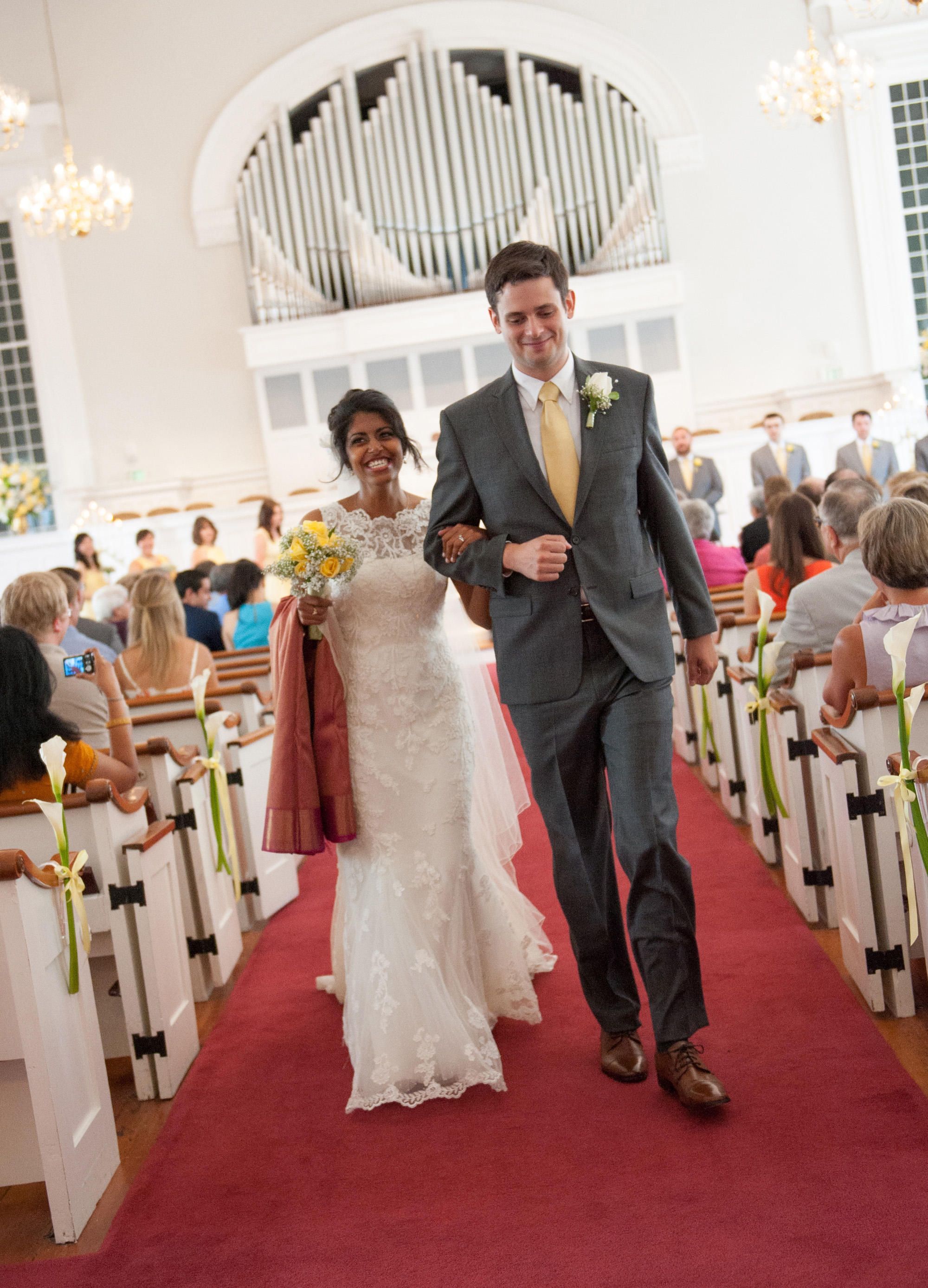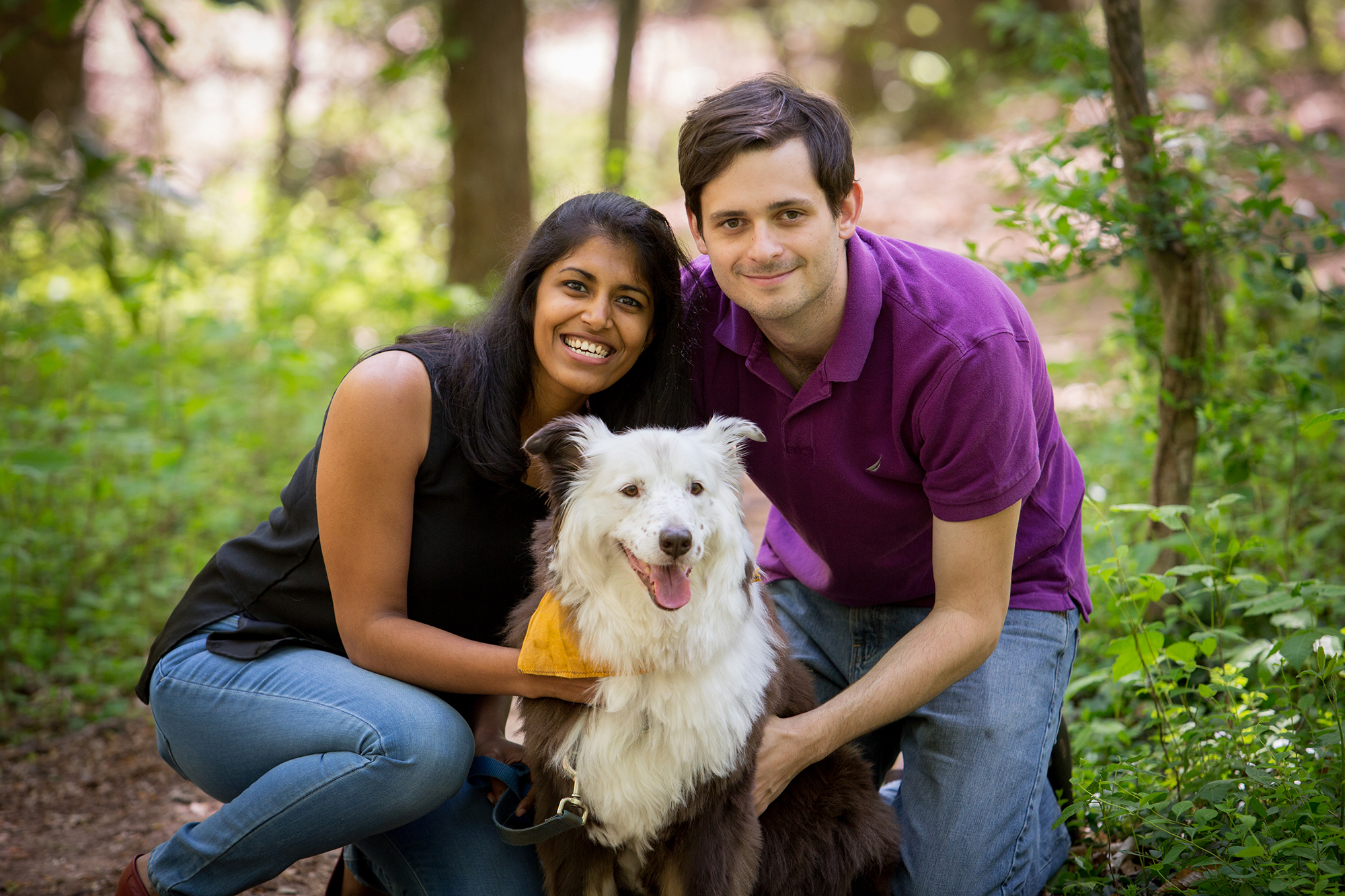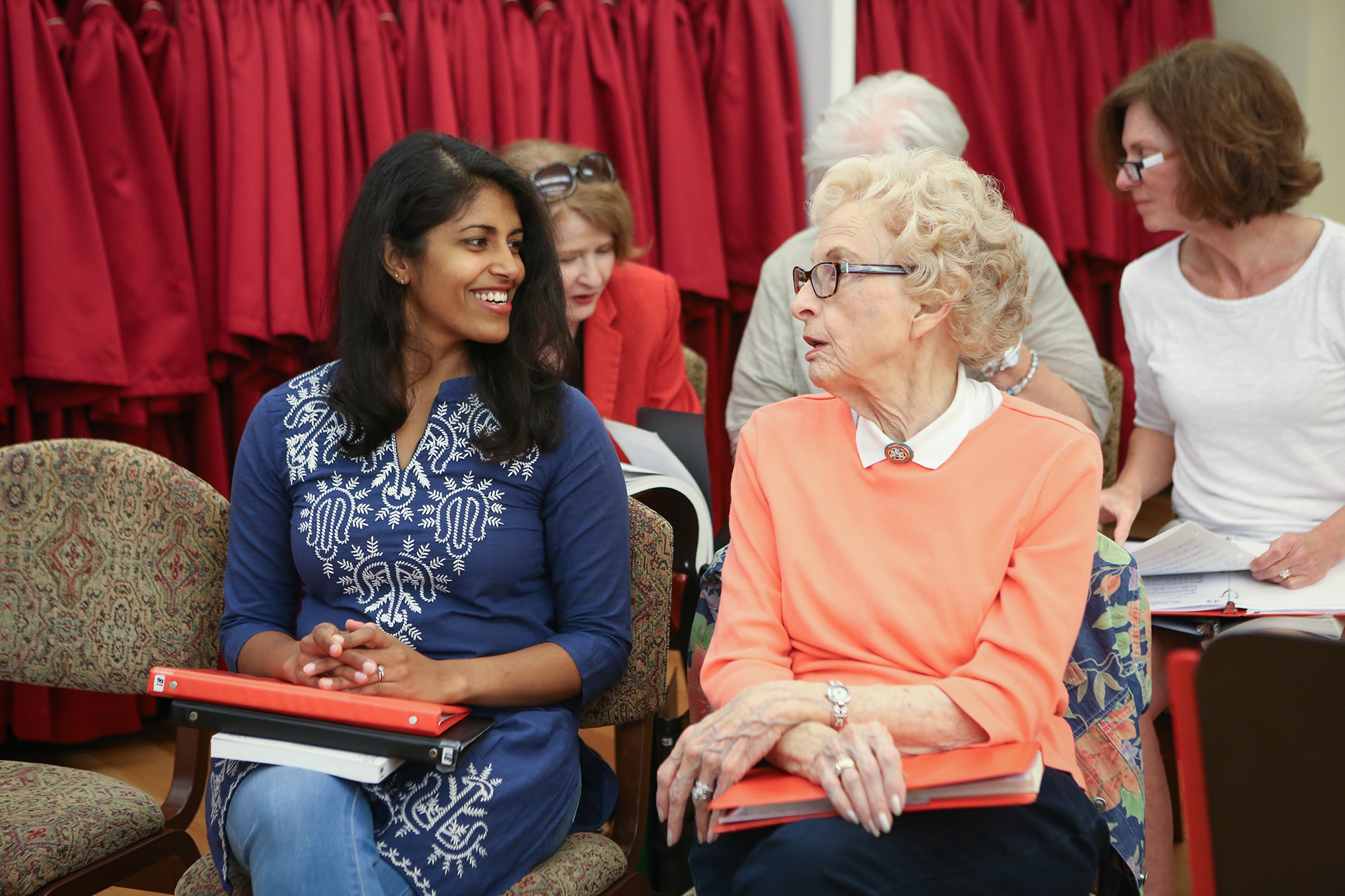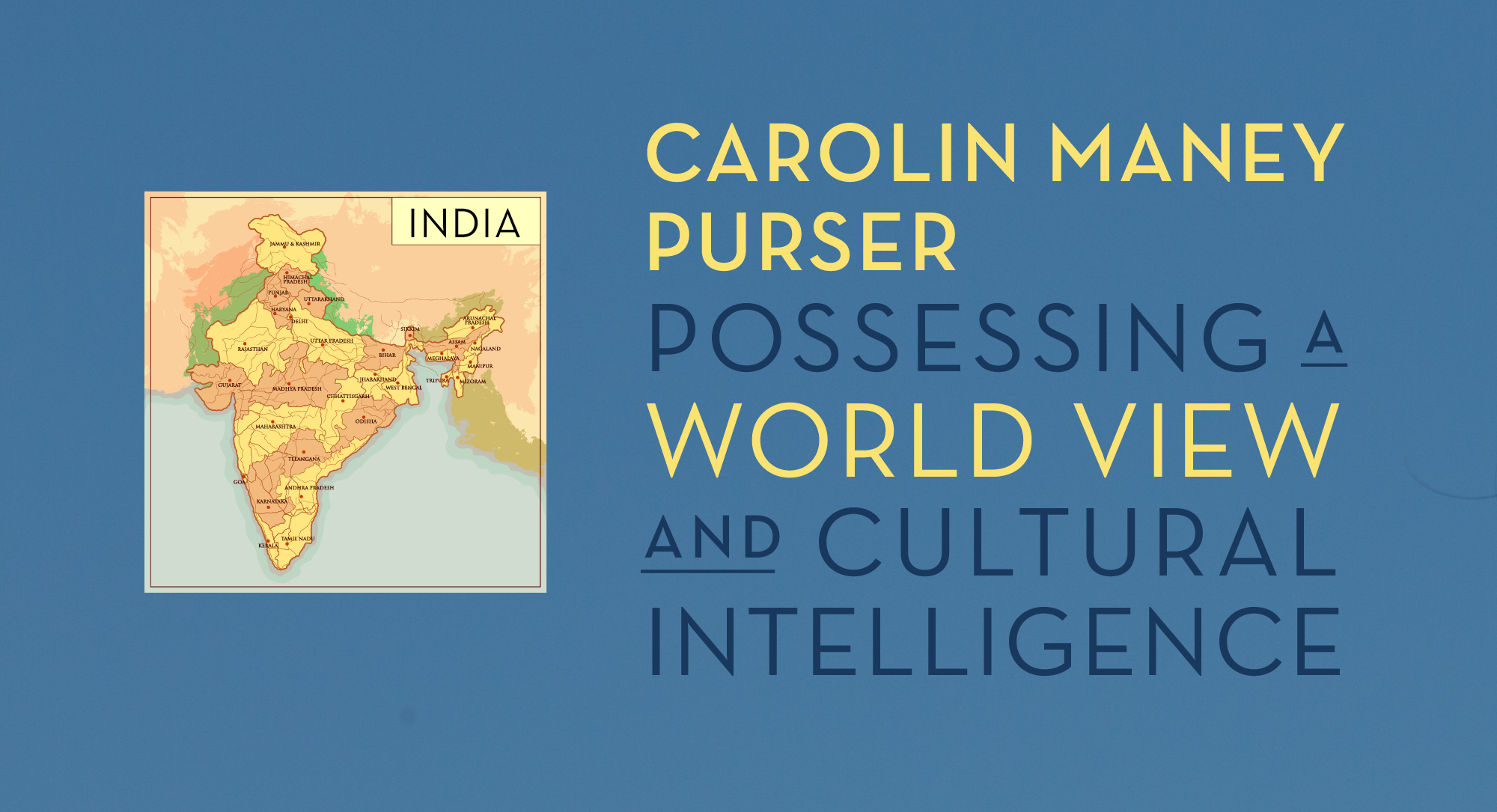Carolin Maney Purser
by Cynthia Adams | Photos By: Nancy Evelyn
Carolin Maney Purser is a political scientist who just completed her doctoral studies, and one possessing a wide-screen view of American culture and politics. She scrutinizes culture more than many of her age, given her academic focus and also her life experience. As a high school student in Pune, India, she studied with 300 students from over 70 countries, which lent her a broader world view. She came to the United States to study at Colby College in Maine.
Fully acclimated to American life, Purser came to Georgia to enter UGA’s School of Public and International Affairs to study global issues.
As a graduate student, she met her husband, Greg, who was working with homelessness at an area nonprofit agency. Within a year, the couple was married. “I was ready to meet someone,” she says. But she talks about homesickness, while sipping a cup of tea at Jittery Joe’s.
Earlier that day, she had desperately wanted to locate Indian peanut brittle, something she occasionally craves that reminds her of her prior life, the one she led before she became an American Southerner.
Here in Georgia, she reveals, was where she became more deeply assimilated into American life, especially life in the South. “My husband’s family is from Cochran, Georgia,” she explains.
She and Greg Purser integrated their Southern and Indian lives fully, even involving their families into that deeper integration. “His family even came to India after we married,” she says.
Carolin Maney Purser, a forward thinking woman social scientist. Adaptive Resilience is an important aspect of Purser’s personal and professional life.

Photo By: Dawn Louise Aschberger
The couple had actually met virtually through an online social media site. At the time, Purser was homesick, having spent years studying abroad and coping with a sense of aloneness. Her parents wanted her to create a matrimonial profile, intending to arrange a marriage as was traditional in India. She did so at their behest. Then, Purser found Greg’s online posting.
“It was an interesting posting,” she says, smiling at the recollection. “He wrote that he plays music, liked hiking, and valued a sense of humor.” Purser sensed that humor at work in his own profile. “He seemed interesting,” she adds, her smile widening. “He was still working at the Athens area homeless shelter and had finished his masters.” She liked his social sense but also liked that he had an advanced degree and valued education. Their first actual date was set for Feb. 14, 2013, something that was lost upon Purser at the time. “I hadn’t even considered the fact that it was Valentine’s Day!” The date was moved to the 19th when Greg became unwell.
It was a pleasant meeting and they arranged for another. The pair was engaged by the end of the year and tied the knot the next July, 2014.
“We got married in Athens, and then had the reception in India, with 500 or 600 people. The Athens reception was small, there were only 85.” The couple integrated American customs like the unity candle into their ceremony as well as Indian traditions. Purser’s parents attended the wedding and got to know the new members of the family. A reception in India was planned for December enabling the young couple to experience Christmas in India together.
The reception was to be enormous, and Purser says she was jubilant when her new in-laws agreed to attend. “Greg’s parents, brother and sister-in law—all six of them! Five people who have never been to India before!”
The newlyweds travelled to Thrissur in India in advance of the Cochran contingent to prepare things for their arrival. “Not a major city,” Purser explains, “but a bigger and more crowded city than Cochran, Ga., where my husband’s family is from.” Her own parents were resilient people, she says, whom she says find travel fascinating. Yet her husband’s parents were new to international travels.
“My new in-laws were enthusiastic, but were apprehensive about the crowds, frequent traffic jams, unfamiliar food, and long drives on Indian roads.” Nonetheless, she says she was elated that her in-laws would make the long journey. As much as she wanted to show her new in-laws the breadth of India, she had to choose a few places in South India and easy accessible. “This meant skipping historical monuments in Delhi and Agra,” she says. But the coup was, her new extended family would come together across cultures for a traditional celebratory reception which would span days.
She noticed, too, that there were distinct social cues she could not miss. Were her own family members as accepting of her new husband and family as she had hoped? “I was surprised that my uncles, who speak English quite well, didn’t use it!” She was immediately suspicious that some of her relatives were passive aggressive in not consenting to speak to her new in-laws in their native language. She worried “if disapproval of my parents allowing me to marry outside our culture was a problem.”

This American Life: Purser with her husband Greg Purser, who is currently a UGA doctoral student. Scholarship is a shared value that further bonded the couple. This fall, Carolin Maney Purser will become a visiting assistant professor of International Studies at Rhodes College in Tennessee.
As a forward thinking woman and social scientist, Purser thought deeply about what marriage represented. “Marriage is a conventional act. How much should you give away?” She muses. For example, her maiden name, Maney, was the last vestige of her Indian culture, so she kept it and used it as her middle name. Soon the new couple were discussing both doing studies while newlyweds.
“Greg is in his third year of his PhD. Both of us are really pleased that we are both in graduate school. We are aware of how privileged we are, getting to be able to be together and students together.”
Today, Purser attends the First Presbyterian Church where she sings in the choir. She is fully engaged in the life of the Athens community and small town American life. She was also both personally and professionally interested in the events surrounding the presidential election this past November.
On the day after the election, Purser was deep in thought. The election had been compelling and dramatic, and especially instructive for a political scientist. It was an experience beyond any she anticipated.
While teaching her global issues studies, she used the historic moment to stress, “as citizens of a democracy, participation is not something that happens once in two or four years. It is an ongoing process of being aware of current issues and how institutions within democracies function effectively, and participating in multiple ways, including through elections.”
She added a personal aside. “If you are happy about the election, that’s okay. But if you are not, that’s okay.”
Later that day, Purser attended choir practice. As she left the church, she was deeply absorbed in the election news, still processing it. Suddenly, the blue light of a police car startled her. Purser pulled over.
The police officer walked over to her car window and told Purser, “I do not want to ticket anyone today, but, you don’t have your lights on.”
Thanking the officer and allowing herself a sigh of relief, Purser turned on the headlights and navigated her way on home through the gray veil of darkness.

Purser attends the First Presbyterian Church and is a member of the choir. She is fully engaged in the life of the Athens community and small town American life. In her view, these experiences have allowed her to acculturate in a deeper and more meaningful way. For her, town and gown merge.









